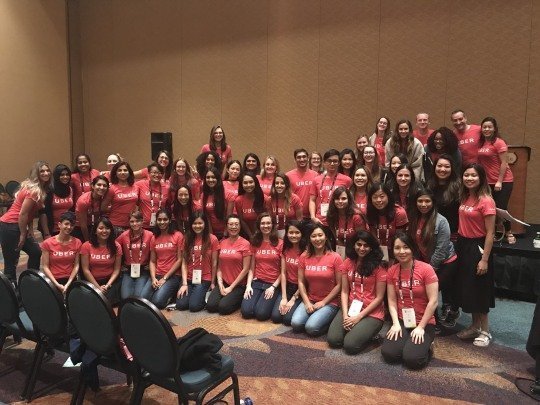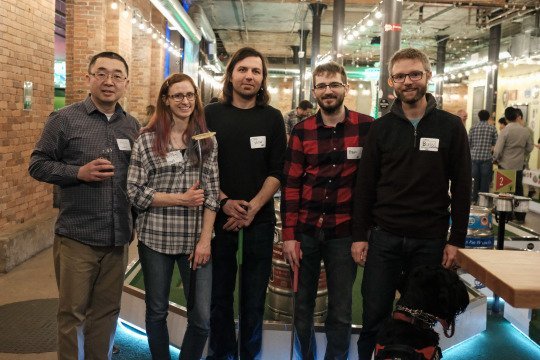
1. What were you doing before you became a Software Engineer?
I’ve had lab jobs in an oceanography, genetics and organic geochemistry. I’ve also worked in a library and as a waitress. Most recently I worked for a number of years as a pharmaceutical research chemist. Right before Ada I was at Seattle-based Amgen.
2. Where are you currently working and what do you do?
I am a Site Reliability Engineer (SRE) at Uber on the Software Networking team. What an SRE means to me is an engineer who’s focused on increasing the robustness of the services they work on, making the inevitable migrations from one technology to the next smooth and seamless (no news is good news). I spend a lot of time thinking about all the ways a new or updated project could break at scale. Our custom layer 7 networking stack is vital for our multitude of microservices to talk to one another reliably, despite inevitable machine and human failures. The Seattle office is great in that my customers are mostly a walk or instant message away.
At present I’m working on rewriting a domain name management service from Python to Golang. We’ll get a boost in performance by moving over to Go and a chance to re-architect using the knowledge gained from years in production. Because of this re-write we can add new features and expand older ones.
3. What’s your favorite part of your job?
Truly my favorite part of the job is my team. I feel super fortunate to have landed this role considering the people I get to work with. They have always been open to sharing their knowledge and time with me whenever I have a question, and I’m afforded the freedom to explore many different topics since our team covers the entire software networking stack, front to back, from Linux all the way up to architecture best practices.
Second favorite is the fact that I can and am supposed to think critically and question things as an SRE and plan for failure. Failures such as whole hosts breaking, communication between services declining, high request volumes or burst traffic, and whole regions of hosts going offline.
Lastly, I get to connect with broader ranks of exceptional engineering talent within the company and participate in extracurricular events. Recently I had the opportunity to attend Grace Hopper as part of Lady Eng (an employee resource group for women and non-binary engineers). As most readers of this blog may know, Grace Hopper is the world’s largest gathering of women technologists. I had fun getting to know other women from the other Uber offices, and was able to meet fellow engineers from around the world. It was inspiring to see 17,000 people come together under the mission of advancing women in technology.
4. Describe a typical day in your role.
A typical day involves me coming in between 8:30-10am and grabbing some breakfast while reading my emails. Every other day we have a standup where I can address what I’d like to accomplish for the week and identify needs. If I’m on-call I check our dashboards to see the health of the overall system. Perhaps surprisingly a fair amount of my job is communication, so beyond the meetings there are email discussions and documents to write up. When I get a chance I snag a few hopefully uninterrupted hours to code. On top of all of this there are company-wide meetings focused on announcements and new programs, as well as truly inspirational stories of employees’ acts of kindness in response to recent tragedies. We are a global company, and these meetings serve as a good reminder that our engineering work affects individuals around the world in pretty profound ways, like how they get around and make money.
5. Any advice you have for others looking to enter the tech industry as a programmer?
The tech space is so large, don’t feel as though you need to distance yourself from what you currently enjoy or love. There are developers who create art with code, developers who send rockets into space, developers that are creating the next generation of ‘smart clothes,’ small and large companies and everything in between. Just because you are entering the tech industry doesn’t mean you need to sacrifice who you are.
Some practical advice is when you’re looking for a job, if the company has blogs or if executives have recently given interviews, read that stuff to get a sense of the culture and priorities. If you can, talk to the people you’d be working with and see if they can provide what you’re looking for in a job and workplace to ensure your success.

